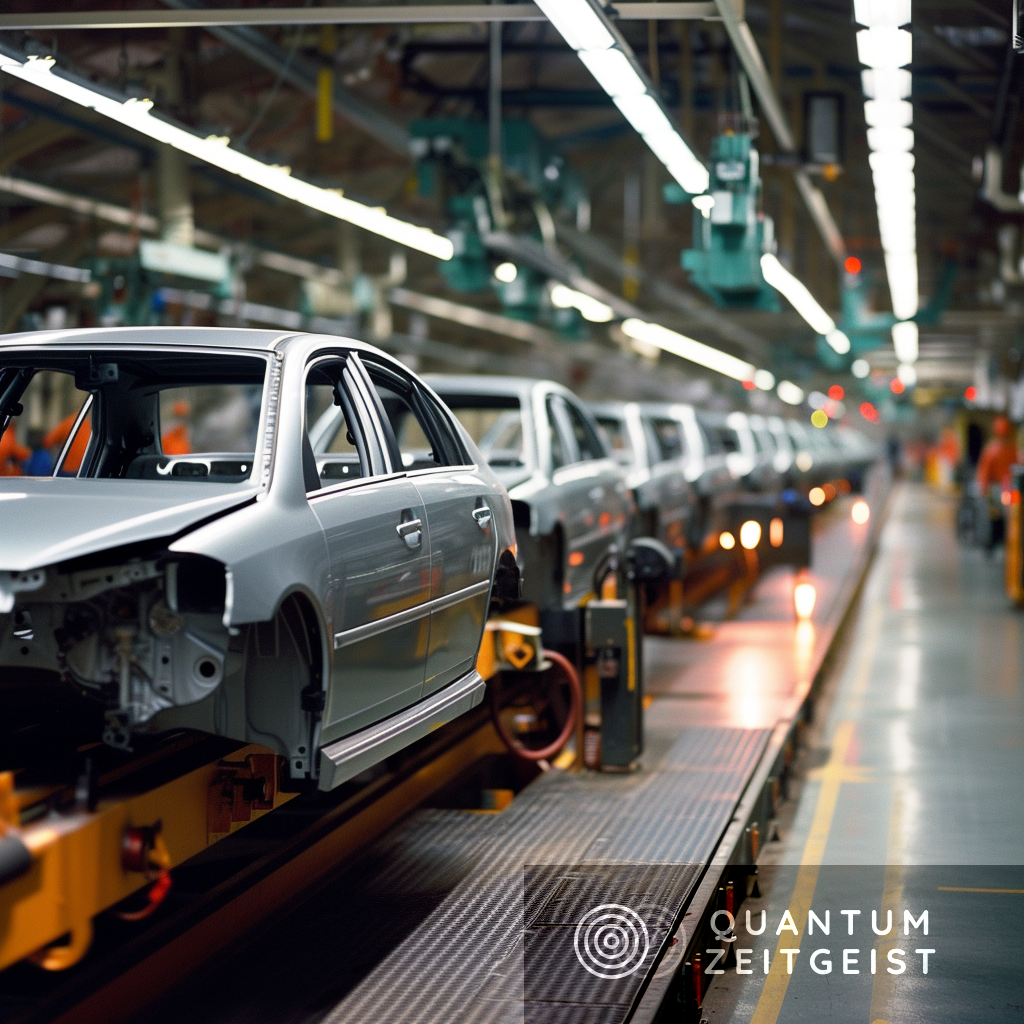Quantum computing (QC) and machine learning (ML) are emerging technologies with the potential to significantly enhance speed, precision, and resource efficiency in the manufacturing industry. A project report proposes a quantum computing-enhanced service ecosystem for manufacturing simulations, integrating QC into Industry 4.0 frameworks as Quantum-as-a-Service (QaaS). The report explores the current state of QC and quantum-assisted ML (QML), and their applications in various sectors. It also discusses two use cases: the simulation of manufacturing processes for jet engine components, and laser cutting of metals. The report concludes that QC and QML could revolutionize the manufacturing industry.
Quantum Computing and Machine Learning in Manufacturing
Quantum computing (QC) and machine learning (ML), individually or combined into quantum-assisted ML (QML), are emerging computing paradigms with significant potential for speedup, precision increase, and resource reductions. These improvements could have a substantial economic impact on the manufacturing industry. This project report proposes a framework for a quantum computing-enhanced service ecosystem for simulation in manufacturing, consisting of various layers from hardware to algorithms to service and organizational layers.
Current State of Quantum Computing and Quantum Machine Learning
The current state of the art of applications research based on QC and QML is explored from both a scientific and an industrial perspective. Quantum computing technologies are being evaluated in various domains such as finance, production, chemical modeling, and drug design. Some algorithms feature provable speedup, while many others are being analyzed by simulation on classical computers or early QCs. The combination of machine learning with quantum computing, known as quantum-assisted machine learning or simply quantum machine learning (QML), harbors the potential of increased computing power for solving complex optimization problems.
Quantum Computing-Enhanced Service Ecosystem for Simulation in Manufacturing
The project proposes a framework for a quantum computing-enhanced service ecosystem for simulation in manufacturing. This involves integrating QC into Industry 4.0 frameworks as Quantum-as-a-Service (QaaS) and facilitating knowledge transfer between quantum computing and manufacturing. The framework consists of various layers ranging from hardware to algorithms to service and organizational layers.
Use Cases: Simulation of Manufacturing Processes and Laser Cutting of Metals
Two high-value use cases are analyzed for a quantitative evaluation of these new computing paradigms for industrially-relevant settings. The first use case relates to the simulation of manufacturing processes with the aid of finite element methods (FEM) for the production of blade integrated disks (blisks) for jet engines. This involves the simulation and optimization of milling processes while complying with quality specifications. In this use case, QC technologies are implemented to accelerate classical simulation processes. The second use case relates to the field of laser cutting of metals with a focus on heat dispersion and thermal expansion. Here, hybrid and pure QML approaches are discussed.
Quantum Simulation and Quantum Machine Learning Approaches
The report discusses the applicability of QC and various approaches for QML for the simulation of manufacturing processes. It distinguishes between approaches that solely rely on quantum algorithms and hybrid approaches combining QC algorithms with classical algorithms. It describes the typical bottlenecks of current computing for application in real-world tasks such as manufacturing and describes several strategies pursued to improve the quality and speed of those calculations.
Quantum Computing in the Manufacturing Industry
The primary goal of the project is to develop potential use cases for QC and QML for the manufacturing industry within the lightweight design sector. The term simulation refers to the use of computational models to imitate physical systems over time. The objective is to understand, develop, and evaluate software that addresses the application of QC in distinct and explicit industry-driven use cases.
Conclusion
The project report provides insight into the current state of the art of applications research based on QC and QML, both from a scientific and an industrial point of view. It further analyses two high-value use cases with the aim of a quantitative evaluation of these new computing paradigms for industrially-relevant settings. The report concludes that QC and QML have significant potential to revolutionize the manufacturing industry.
This article, titled “Quantum Computing Enhanced Service Ecosystem for Simulation in Manufacturing,” was published on January 19, 2024. The authors of the paper are Wolfgang Maaß, Ankit Agrawal, Alessandro Ciani, Sven Danz, Alejandro Delgadillo, Philipp Ganser, Pascal Kienast, M. Kulig, Valentina König, Nil Rodellas-Gràcia, Rivan Rughubar, Stefan Schröder, Marc Stautner, Hannah Stein, Tobias Stollenwerk, Daniel Zeuch, and Frank K. Wilhelm. The paper was published in arXiv, a repository of electronic preprints approved for publication after moderation, hosted by Cornell University. The DOI reference for the article is https://doi.org/10.48550/arxiv.2401.10623.

